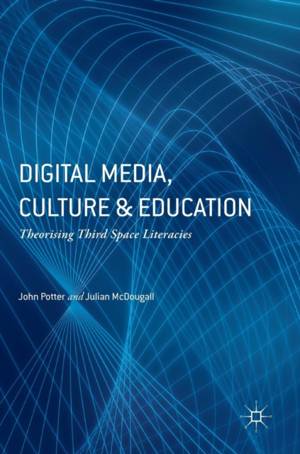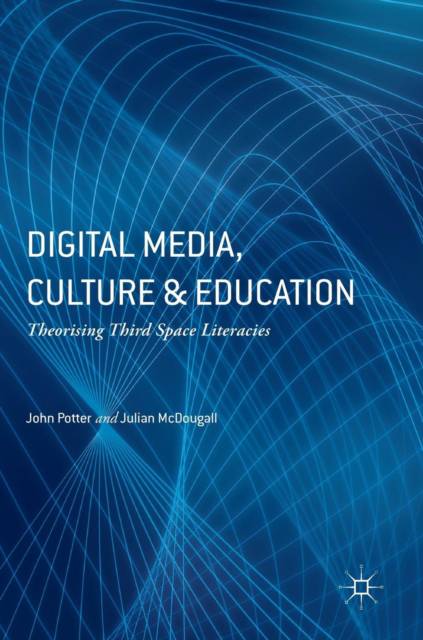
Je cadeautjes zeker op tijd in huis hebben voor de feestdagen? Kom langs in onze winkels en vind het perfecte geschenk!
- Afhalen na 1 uur in een winkel met voorraad
- Gratis thuislevering in België vanaf € 30
- Ruim aanbod met 7 miljoen producten
Je cadeautjes zeker op tijd in huis hebben voor de feestdagen? Kom langs in onze winkels en vind het perfecte geschenk!
- Afhalen na 1 uur in een winkel met voorraad
- Gratis thuislevering in België vanaf € 30
- Ruim aanbod met 7 miljoen producten
Zoeken
Digital Media, Culture and Education
Theorising Third Space Literacies
John Potter, Julian McDougall
Hardcover | Engels
€ 244,45
+ 488 punten
Omschrijving
This book provides a critical commentary on key issues around learning in the digital age in both formal and informal educational settings. The book presents research and thinking about new dynamic literacies, porous expertise, digital making/coding/remixing, curation, storying in digital media, open learning, the networked educator and a number of related topics; it further addresses and develops the notion of a 'third space literacies' in contexts for learning. The book takes as its starting point the idea that an emphasis on technology and media, as part of material culture and lived experience, is much needed in the discussion of education, along with a criticality which is too often absent in the discourse around technology and learning. It constructs a narrative thread and a critical synthesis from a sociocultural account of the memes and stereotypical positions around learning, media and technology in the digital age, and will beof great interest to academics interested in the mechanics of learning and the effects of technology on the education experience. It closes with a conversation as a reflexive 'afterword' featuring discussion of the key issues with, amongst others, Neil Selwyn and Cathy Burnett.
Specificaties
Betrokkenen
- Auteur(s):
- Uitgeverij:
Inhoud
- Aantal bladzijden:
- 205
- Taal:
- Engels
Eigenschappen
- Productcode (EAN):
- 9781137553140
- Verschijningsdatum:
- 10/05/2017
- Uitvoering:
- Hardcover
- Formaat:
- Genaaid
- Afmetingen:
- 148 mm x 210 mm
- Gewicht:
- 412 g

Alleen bij Standaard Boekhandel
+ 488 punten op je klantenkaart van Standaard Boekhandel
Beoordelingen
We publiceren alleen reviews die voldoen aan de voorwaarden voor reviews. Bekijk onze voorwaarden voor reviews.









